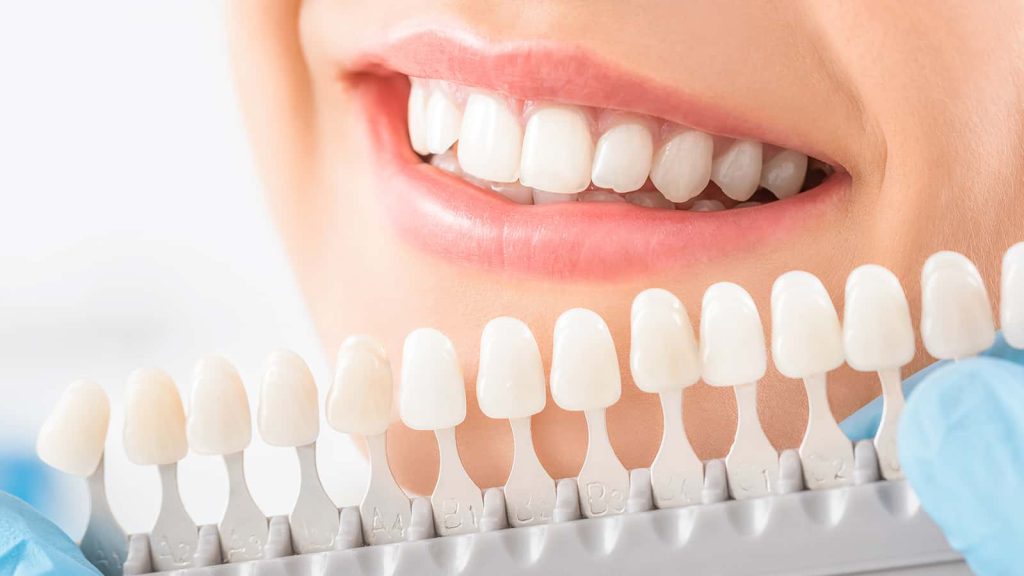
A bright and radiant smile can boost your self-confidence and leave a lasting good impression. The best way to keep your smile bright and stain-free is to understand how to eat and drink for whiter teeth, but we understand the temptation of DIY whitening with so many over-the-counter products and DIY remedies available in Saskatoon today. While this seems convenient and affordable, it’s important to understand the risks.
Here are 5 reasons you should see a dentist before attempting to bleach or whiten your teeth, plus 5 ingredients to watch out for.
- Unpredictable or uneven results:
Over-the-counter whitening products vary in their ingredients, concentrations, and effectiveness. Without proper knowledge and assessment of your dental condition, it’s difficult to determine the most suitable whitening method for your teeth. This may result in uneven whitening, inconsistent color, or an unnatural appearance.
- Tooth sensitivity:
Tooth sensitivity is a common side effect of teeth whitening, especially when done incorrectly or excessively. Dentists are trained to assess your teeth and determine the appropriate whitening treatment based on your individual needs. They can provide customized solutions to minimize tooth sensitivity and protect your dental health. Without professional guidance, you may inadvertently subject your teeth to unnecessary and uncomfortable sensitivity.
- Gum irritation and chemical burns:
Whitening products contain active ingredients such as hydrogen peroxide or carbamide peroxide, which can cause irritation to the gums if applied incorrectly or in excessive amounts. Dentists are equipped with the knowledge and tools to properly protect your gums during the whitening process. They can apply barriers or use special techniques to prevent the whitening agent from coming into contact with your gums, reducing the risk of irritation or chemical burns.
- Dental damage:
Overusing or misusing whitening products can damage the enamel, the protective outer layer of your teeth. Enamel erosion can lead to tooth sensitivity, discoloration, and increased vulnerability to cavities. Dentists have the expertise to determine the appropriate concentration and duration for your whitening treatment, ensuring that it is both effective and safe. They can also evaluate your dental health and address any underlying issues that may affect the whitening process.
- Undiagnosed dental problems:
By consulting a dentist before whitening your teeth, you have the opportunity to have a comprehensive oral examination. Dentists can identify potential dental problems such as cavities, gum disease, or tooth decay that may require treatment before proceeding with any whitening procedures. Ignoring these issues and proceeding with whitening at home could worsen existing problems and compromise your oral health in the long run.
Common ingredients in whitening products
While dental whitening products available on the market are generally considered safe when used as directed, it’s important to be aware of potential risks associated with certain ingredients. Here are some common ingredients found in dental whitening products that, if used improperly or excessively, may pose potential dangers:
- Hydrogen Peroxide is a key ingredient in many dental whitening products due to its bleaching properties. If used in excessive amounts or for prolonged periods, hydrogen peroxide can lead to tooth sensitivity, gum irritation, and even chemical burns.
- Carbamide Peroxide has risks similar to Hydrogen Peroxide including tooth sensitivity and gum irritation. Following the recommended usage and concentration levels is crucial to minimize potential adverse effects.
- Sodium Hydroxide is sometimes used as a pH adjuster in dental whitening products to maintain the desired pH level and stability of the product. Excessive exposure or improper handling can cause chemical burns, irritation to the gums, and damage to oral tissues.
- Chlorine Dioxide is occasionally used as a whitening agent due to its oxidizing properties. However, it is a potent chemical and should only be used under professional supervision. Misuse or overexposure to chlorine dioxide can cause irritation to the gums, damage to oral tissues, and discoloration of the teeth.
- Citric Acid is a common ingredient in many whitening products as it helps to remove surface stains from teeth. While it is generally safe, excessive or prolonged exposure to citric acid can erode tooth enamel and increase tooth sensitivity.
Professional dental whitening is the best, safest, and most effective option
The risks of whitening your teeth without consulting a dentist should not be overlooked. Professional guidance ensures a safer and more effective teeth whitening experience. Dentists can assess your dental health, provide personalized treatment options, and minimize the potential risks associated with improper whitening practices. Remember, when it comes to your oral health, it’s always best to seek the advice of a qualified dental professional to ensure a healthy and radiant smile.
